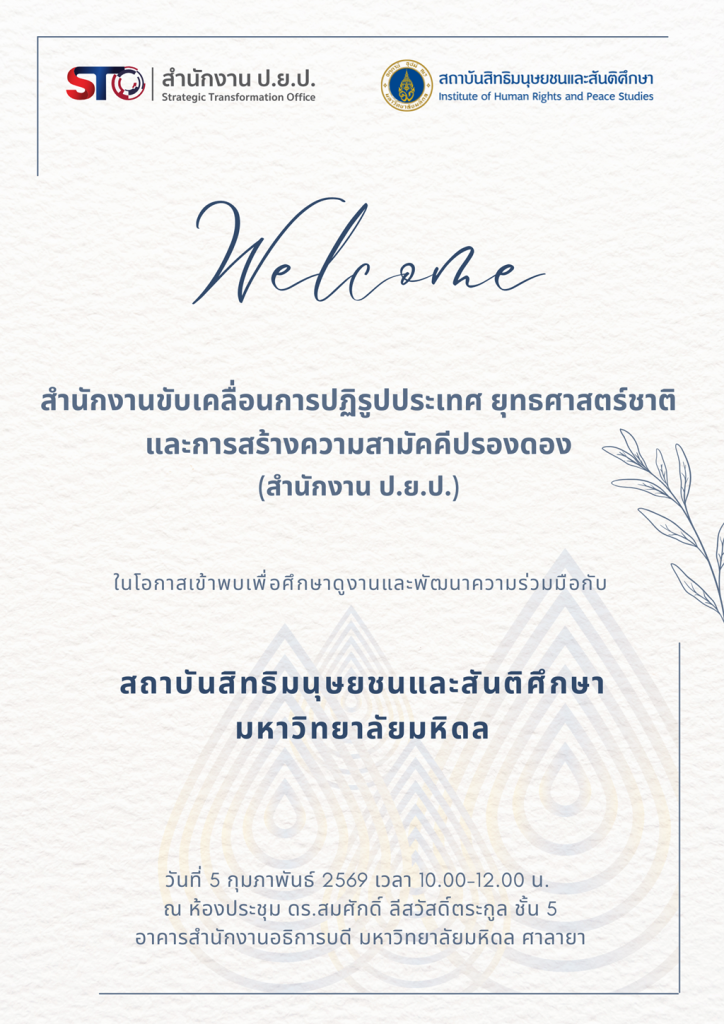If you are studying a similar graduate program at another university, it is possible to take one semester of classes on the MA Human Rights program at IHRP. This will help you to gain a clearer understanding of Human Rights issues and campaigns in other parts of the world, and would be particularly useful if you are planning to work in Asia, or are performing research on a topic in Asia.
For exchange students each case is different, we need to make sure that you can earn credits for the classes you take at IHRP. If you would like to know more about how to study as an exchange student at IHRP, you can contact our staff at ihrpma@mahidol.ac.th
Last year Michael from the US came to study on the MA Human Rights program for the first semester. We asked him to share his experiences with other students who might like to do the same:
Why were you interested in studying human rights?
I was interested in studying human rights mostly because the field really developed within the latter half of the 20th century and the idea of “human” rights is evolving to encompass more and more subjects within an international legal framework. I am interested in examining the legal framework of human rights and the applicability of the law in the international arena.
What is your background and what course were you studying at your home university?
I have a BA in History and German language from Penn State University, I worked in the field of shipping logistics for 3 years after my undergraduate studies and have graduated in May 2017 with a MA in International Peace and Conflict Resolution from Arcadia University. Prior to studying at IHRP I was working in both Sierra Leone, studying the social effects of the Ebola outbreak, and in Myanmar for Smile Education and Development foundation in Yangon, which focused on human rights and the promotion of interfaith harmony in the country.
Why did you choose to study a semester abroad?
I chose to study a semester abroad because, in my mind it can only benefit me to see and interact with the world outside my home country.
Why did you choose IHRP?
I chose IHRP at the suggestion of one of my colleagues who forwarded me information about the program. I read about it and the topic of human rights is very interesting. I then sent IHRP an email and they responded saying it is possible to study as a part time exchange student with the MA Human RIghts program.
What was your experience of studying at IHRP?
I had a great experience studying at IHRP. I believe that the professors are very well qualified and experienced and offer great insight into the nature of human rights both in theory and in practice. Furthermore, being in a key center of Southeast Asia, IHRP affords the opportunity to engage more in the field than a US University could.
What are your plans for the future, and how do you think your time at IHRP will help you achieve them?
I am already planning to move back to Thailand in October 2017. From there I will work toward a career in the human rights field. I have kept in contact with many of my IHRP colleagues and hope to work with them in the future.
Do you think it was beneficial to your understanding of human rights to study in a non-Western country?
Yes, I believe it is beneficial because so much of human rights theory developed from the Western tradition. But it makes one think critically about the origins of human rights especially given the imperialist practices of the Western nations. Studying HR in a non-western country may help to bring about the universal nature of human rights through exposing the hypocritical ideals and practices which have emerged from the West.
